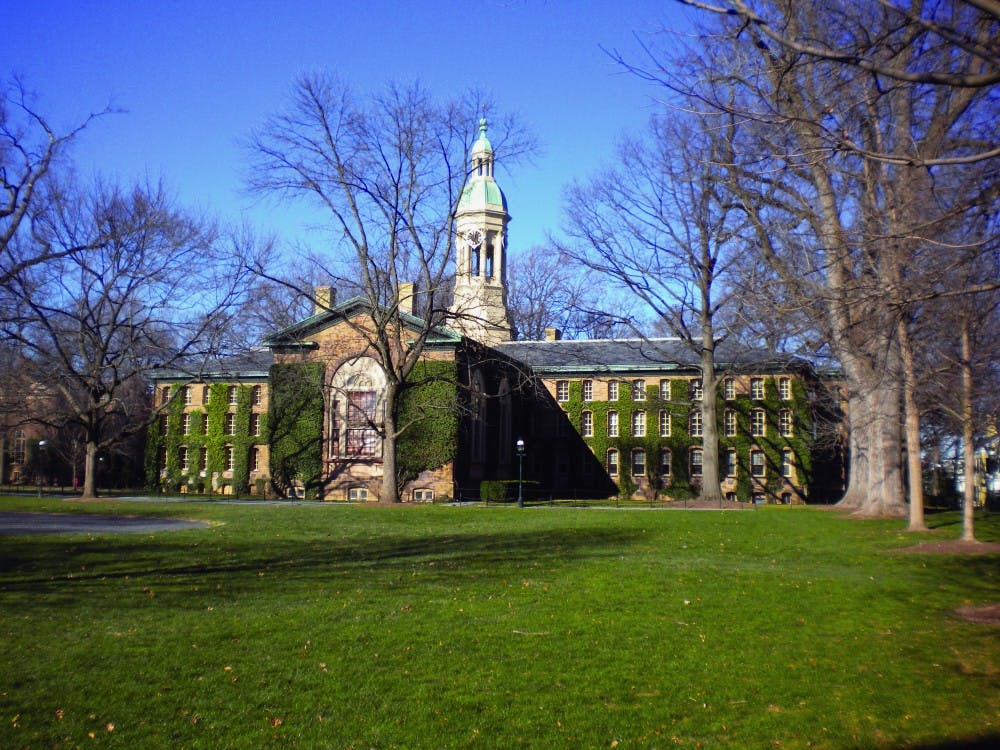As a step toward establishing an undergraduate concentration in American Studies with tracks in Asian American and Latinx Studies, President Christopher Eisgruber ’83 and Dean of the College Jill Dolan expressed support for increasing faculty appointments and other recommendations put forward by the Task Force on American Studies in a statement released on Nov. 22.
According to the statement, effective immediately, the University will phase in faculty appointments in American Studies. The effort will begin with the joint appointments of current faculty from other departments, who will be selected by the provost and dean of faculty as well as the leadership of the AMS program.
“Searches are already underway via other departments for ladder-track faculty in Asian American and Latinx Studies,” Dolan said. She also explained that there is no target for the number of appointments.
Nicholas Wu ’18, co-president of the Asian American Student Association, stated that he is pleased with the University’s response. AASA had helped compile information for the task force report.
“This is something we’ve been working on for decades, and this is the first institutional step — setting aside the FTEs to fund American and Asian American Studies — that the University has taken,” Wu said.
AASA compiled a report articulating the need for an Asian American Studies program at the end of 2015. The group also held a panel discussion during early 2015 and circulated multiple petitions in the past decade in support of Asian American Studies.
Briana Christophers ’17, former co-president and current advocacy chair of Princeton Latinos y Amigos, noted that although there’s a pronounced need for more faculty for Latinx studies, it is unclear where the recommendations will lead.
“Once Latinx Studies is integrated into American Studies there is not exactly a simple way for it to ever become its own department. We do desperately need more support for Latinx Studies professors, courses, and scholarship at Princeton, and the creation of a Center for American Studies could help with that,” she said.
The statement also indicated that the University is in the process of searching for new faculty members. However, these new appointments are contingent on fundraising.
Dolan noted that it is difficult to predict when the new appointments and other initiatives will materialize. However, she said that fundraising for AMS is one of Eisgruber’s priorities.
“President Eisgruber, as the response says, has committed to fundraising for American Studies, among his other priorities. We hope that donors will be excited about the proposals,” Dolan said.
Eisgruber deferred comment to Dolan.
According to Wu, the Asian American Alumni Association has actively supported efforts for ethnic studies and has maintained a consistent fund to encourage expansions like the ones endorsed by Dolan and Eisgruber.
As noted by the statement, the initial report submitted by the task force cites the inability of AMS to make faculty appointments as the most significant constraint for the program. “Talented faculty who wish to participate in our program are all overburdened,” the task force report read. “As a result, their teaching service to American Studies is unpredictable and, through no fault of their own, unreliable.”
Both Dolan and Eisgruber found this assessment persuasive, according to their statement.
Hendrick Hartog, professor of history and chair of the American Studies program, did not respond to a request for comment.
Wu also noted that currently, course offerings in Asian American Studies fluctuate from year to year depending on faculty availability from other departments. According to Wu, among the three courses offered in Asian American Studies next semester, two will be taught by postdocs and the last one by a visiting professor.
Additionally, the statement also endorsed renaming the current Program in American Studies to the Collaborative Center for the Study of America. Though the terms “center” and “program” do not differ in their capacities to conduct research, offer courses, or hire faculty, “center” is more closely associated with interdisciplinary research, an asset for seeking donor support. Furthermore, Dolan and Eisgruber indicated support for the creation of an AMS collaboratory, a non-hierarchical research facility for students and faculty, and a senior-scholars-in-residence program. However, both programs are contingent upon funding, the statement noted.
The statement also articulated that the University has placed a “low priority” on the creation of a postdoc program for AMS.
The first step will be a full concentration in American Studies, once it is proposed and approved by standing committees and by the University Faculty. The certificate program in Latinx studies will remain separate and allied.
As a sizable expansion is in sight for American Studies, the statement also noted it will move to a new physical location later this academic year, and that there are plans in place to create a permanent home for the program.
According to Wu, the current space for the AMS program consists of only a few offices in McCosh Hall Entryway 4.
“We look forward to the ever more robust presence of American Studies, and all its attendant fields, here at Princeton,” Dolan said.
Wu noted that continued student support is key to attaining the items endorsed by the statement.
“It’s up to students to keep the administration accountable for everything that happens, to maintain student interests,” Wu said.
However, Christophers noted that some students are worried that ethnic studies will not be as big of a priority once they are integrated into American Studies.
“I hope that if the Center, once created, remains committed and serious about bolstering ethnic studies. Then some really incredible work could come out of Princeton that would encourage the creation of new courses and independent studies topics.”
She also noted that her group will continue to advocate for Latinx studies offerings and that she will work with AASA to continue promoting positive scholarship for ethnic studies at the University.





